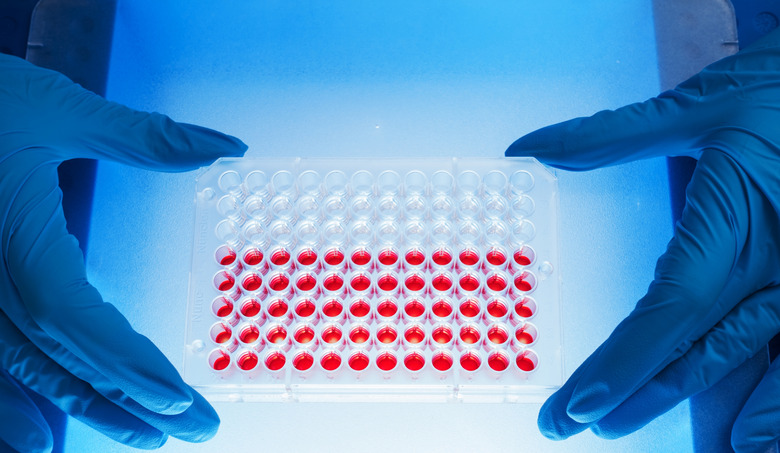How Can A Mutation In DNA Affect Protein Synthesis?
Some DNA mutations are silent and have no effect, but others affect protein, essential molecules for life, that regulate whether the gene is active or not, make more or less protein or change protein synthesis altogether. A mutation is a change in a DNA sequence brought about either by a mistake made when the DNA is copied or through chemical damage. Regions of the genome, typically called genes, provide instructions for creation of protein molecules, which perform most of the important jobs in cells.
Gene Activation
Gene Activation
Within cells, a variety of mechanisms determine when a gene is switched on and how active it will be. Often this turn-on process occurs when enhancer and promoter regions in the gene are recognized by regulatory proteins that control the activity of a nearby gene. A mutation in an enhancer or promoter region could cause the gene to become more active, meaning more protein will be produced. Or, it could cause the gene to become silent and switched off altogether.
Single-Letter Swaps
Single-Letter Swaps
A point mutation is a single-letter swap – an exchange of two bases, adenine to cytosine, for example, at a single location in the DNA molecule. Since the sequence of letters in a gene determines the sequence of amino acids in the protein it encodes, a point mutation can change the amino acid sequence of the resulting protein. Sometimes a change in the protein's amino acid sequence can have dramatic results. For example, sickle cell disease occurs when a single-point mutation in the gene that encodes the hemoglobin molecule results in deformed red blood cells.
Insertions and Deletions
Insertions and Deletions
Sometimes, copying errors can insert or delete extra letters of the genetic code. Because these insertions and deletions, called indels, can make the protein produced by the gene much shorter or much longer, these errors can have a significant impact. Indels can have a dramatic effect on the protein's structure and function. Insertion or deletion of a single letter can sometimes cause a frameshift mutation, in which the entire amino acid sequence of the resulting protein is changed.
Gene or Region Duplication
Gene or Region Duplication
Sometimes errors during DNA replication can duplicate an entire gene or region of a genome. This type of error can cause more of a protein to be produced, because after duplication, there are two genes that encode it rather than one. Gene duplication appears to have been important in evolution, because the duplicated copy of a gene can accumulate other mutations and perhaps perform a different function than that in a parent.
Cite This Article
MLA
Brennan, John. "How Can A Mutation In DNA Affect Protein Synthesis?" sciencing.com, https://www.sciencing.com/can-mutation-dna-affect-protein-synthesis-2028/. 13 March 2018.
APA
Brennan, John. (2018, March 13). How Can A Mutation In DNA Affect Protein Synthesis?. sciencing.com. Retrieved from https://www.sciencing.com/can-mutation-dna-affect-protein-synthesis-2028/
Chicago
Brennan, John. How Can A Mutation In DNA Affect Protein Synthesis? last modified March 24, 2022. https://www.sciencing.com/can-mutation-dna-affect-protein-synthesis-2028/
